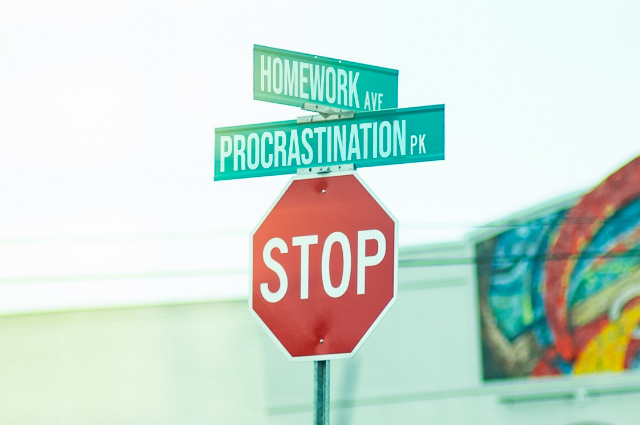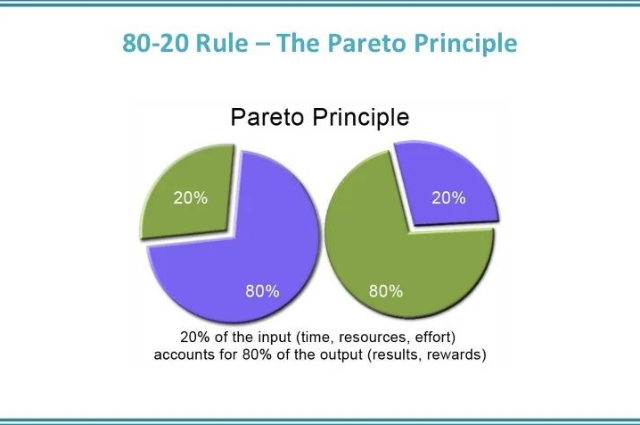
Well, to be frank, for the sake of writing this article, I have finally defeated my procrastination and currently, I'm on my way to being productive in my writing. It might also have happened to you multiple times when you genuinely wanted to accomplish many things but ended up doing nothing or kept delaying them to the next few days. And in this way, we only become more anxious, lazy, and overthinking, and gradually, it becomes our habit to procrastinate on the tiniest of things, such as waking up early or taking a shower, or writing a sweet message to a person we admire the most but never get the time to express our feelings.
So today, we are going to know the reasons for our procrastination, its history, how to beat it by being productive, and finally, some theories on procrastination.
What is Procrastination?
Procrastination is the action of delaying things unnecessarily and voluntarily in order to feel temporary gratification. The procrastinator knows that this delay will have negative consequences but still chooses that option as he lacks the motivation to do that thing in the present moment. It is also known as Dom Williams Syndrome. Procrastination hinders one’s productivity and is often associated with depression, low self-esteem, guilt, and inadequacy.
History of Procrastination
Dr. Piers Steel is one of the leading researchers in the field of procrastination and motivation. He has been studying the science behind these for more than ten years. He believes that procrastination is not a new problem; it has existed for ages. Thousands of years ago, in 1400 BC, Egyptian hieroglyphs were found that talk about procrastination. An Egyptologist at the University of Toronto has translated one of these, which reads, “Friend, stop putting off work and allow us to go home in good time.” About 600 years after this, in 800 BC, an ancient Greek poet said something very similar.
“Put your work off till tomorrow and the day after, for a sluggish worker does not fill his barn, nor one who puts off his work.”
- Greek Poet Hesiod.
Centuries ago, the famous saint Kabir also said
काल करे सो आज कर, आज करे सो अब ।
पल में परलय होएगी, बहुरि करेगा कब ॥
In this Doha, he tells us not to put off our work for tomorrow, not even for later in the day, or else everything will end at the moment.
Many scientists, poets, writers, and motivational speakers have talked about it for decades, but our situation does not seem to be getting better. According to research by Tom Heyden, in the last 40 years, there has been 300% to 400% growth in chronic procrastination. In today's world, more than 50% of the population seems to procrastinate at some point or another.
You would have noticed that we don’t procrastinate on easy things such as scrolling through social media, watching TV, oversleeping, or mindlessly wasting our time. We procrastinate on things that demand our higher focus, energy, and concentrated time, such as completing homework or office project-sheet, hitting the gym, exercising, meditation, etc. Let's dig deep into the reasons for our procrastination.
Why Do We Procrastinate?
- Perfectionism
We human beings tend to find the perfect time to start. The time when we feel motivated enough to begin our work. Some people are perfectionists who don’t start their work unless they find all the necessary resources needed to complete that task. Some even go on perfecting their already completed task, for example, you don’t want to have any minor flaw in your recent writing draft that you have to submit to the editor, so you over and over keep going to your draft but never dare to submit it, as you fear it’s not perfect. - Prioritization of Short-term Mood
I can say that this is the most common reason to procrastinate. We procrastinate as we tend to prioritize our short-term mood over our long-term well-being and future aspirations. We drag our work on tomorrow, and that tomorrow never really comes.
Let's take an example of this situation. Suppose you are given an assignment by your college to research the plant varieties of your area and you are delaying this assignment as you are finding it stressful. And this instant gratification that comes from delaying a task helps you feel better in the short term, but you will end up regretting at the end of each day that you should have started working on it.
This usually happens when we want to feel good by temporarily discarding tasks that otherwise cause us mental stress. We engage in activities that are more appealing and momentarily satisfying, such as scrolling through social media or endlessly chatting with a friend. - Task Aversiveness
It means we delay a certain task that we don’t find pleasant. t. For example, we might delay making an excel sheet as it causes us a lot of mental stress and energy to go through all those numbers. Tasks can be aversive for several reasons such as difficulty level, level of interest, etc. Hence it varies from person to person. - Anxiety and Fear
Often people procrastinate as they are afraid of something, some failure, or judgment. For example, we might delay the submission of our essay as we fear our professor will strongly criticize it, or we end up not attending every meeting that’s a chance for us to get a contract due to our social anxiety. Or we procrastinate when we want to perform on stage but we become anxious when we think of people’s judgment. - Low Motivation
We sometimes procrastinate as we have low motivation to start something. For example, a student may procrastinate in studying as he has no motivation to top the exam. So, he decides to study a day before the examination, which will help him score passing marks.
Well, after getting to know the reasons, let’s now look at how we can beat this. And the first step to beating it is to be productive and start having an effective morning routine accompanied by productive daily small habits that will help you in the long run.
Effective Morning Routine to Beat Procrastination
- Waking Up Early

Image source: unsplash.com
Waking up early can seem to be a daunting task. Instead, sleeping for more time and continuously pressing the snooze button makes us feel a little relieved, at least momentarily. But you would be surprised to know the benefits of waking up early that you are currently missing out on.
Early morning provides you with more time for yourself where you can do things that you always wanted to do but miss due to lack of time. It is also associated with improved health benefits, better focus, long-lasting energy, and more productivity in less time.
Now you will say that it’s easier said than done to wake up early. No matter how hard you try, you end up late getting to your bed and consequently wake up late in the morning too. But to avoid this, you can try some tips that will help you cent percent if you religiously stick to them.
These tricks are:
- Get to bed early.
- Avoid eating late at night.
- Stop using electronic devices for at least one hour before you decide to sleep.
- Turn your phone on DND after 8 pm.
- Avoid waking up late to complete a certain task, like finishing a series.
- Place your alarm clock near you and try not to put it on snooze.
Robin Sharma, in his book ‘Five AM Club’, exerts pressure on the importance of waking up early. He puts it in a quote:
“And all it takes is a single morning filled with positivity to deliver a monumental download of inventive ideas that elevate an entire generation, you know.”
- Daily Morning Meditation

Image source: unsplash.com
We are listening to people who go on insisting us to meditate, but we don’t really try it, as we find it too boring or too difficult to just sit and concentrate on a single task. But I would say that it’s now time for you to start taking it seriously.
Research shows that meditation is associated with structural changes in the areas of the brain. It increases cortical thickness, which helps in improving our working memory. It also helps to declutter your thoughts and sharpen your memory. It helps in reducing stress and feeling joyful and energetic. According to a study, just one session of meditation helps to improve focus and reduce mind-wandering by 22%
- Positive Affirmations

How often do we indulge in negative self-talk that only deteriorates our mood for the worst? “'I can’t do this,” “This is not my cup of tea,” “I’m good for nothing,” “I know I will fail miserably.”
These are some of the thoughts we daily fill our minds with that further demotivate us to take steps that can falsify these notions. negative thoughts block our minds and come in the way of our success that otherwise seems so inevitable. Negative self-talk affects our self-confidence and motivation to do things that are important.
A bestseller author named joseph Murthy greatly emphasizes the power of positive thinking where he focuses on how our thoughts have the power to shape our lives in a good manner. He puts;
“Never finish a negative statement; reverse it immediately, and wonders will happen in your life.”
- Joseph Murthy
When you start your day with positive self-talk, you head on to feel more confident and productive while accomplishing your daily tasks. Many theories put immense importance on positive thinking. In their words, “Self-affirmations can restore self-competence by allowing individuals to reflect on sources of self-worth, such as core values.
Self-affirmations for Productivity
- I am energetic and full of motivation
- I do my work religiously and effectively
- I’m capable of doing this task in a time-bound manner
- I love accomplishing my tasks on time
- I’m thankful for the job I have
- I am really great at what I do
- I love and enjoy my work
- My work makes me happy
- Exercise

Exercise is perhaps the most effective way to stay productive. The latest research shows that exercise has the potential to make you happier, smarter, and more energetic. Daily exercise will also prove to be a great elixir for your mental health. You might have been aware of the fact that with ageing, our body starts to produce fewer and fewer brain cells, but it has been found that exercise fights this problem. 60-70% of people who exercise have more brain cells than their peers who lead a sedentary lifestyle.
Exercising regularly provides you with more energy to lead your daily life more productively. You know that mitochondria are the powerhouse of cells that produce an energetic chemical for our body. Exercising even for a small amount of time stimulates the development of new mitochondria within our cells. It means you will feel physically more energetic and mentally fit.
- Daily Journaling

Not everyone is well acquainted with the benefits of journaling. They either find it too boring or not really valuable. But let me tell you that this single habit of yours has the potential to change your life for the better. Morning journaling, where you ponder upon the roadmap of how your whole day will look like, can schedule your day in advance while clearly helping you set your priorities.
As you write down your goals in your journal, you will be better equipped to track them and achieve them in the given timeframe. It will help you stay accountable and will constantly remind you of the tasks that need to be done that day.
Through daily journaling, you will be able to track your progress, go back to the time when you just started, and can compare how far you have come. In this way, it will help you gain self-confidence while simultaneously improving your writing and communication skills. Other benefits of journaling are that it will reduce the stress and anxiety that comes from procrastinating important tasks and will also go a long way in improving your memory.
- Have a Healthy Breakfast

Image source: unsplash.com
I don’t think that I need to elaborate on this point. We all know the importance of a healthy breakfast in our daily lives. The food that you eat makes a big difference in giving you energy and enthusiasm to get through your day. A breakfast consisting of various proteins, healthy fats, fresh fruits, and vegetables is all that you need to kick off your productive day.
Add food like oatmeal, almond butter, yogurt, eggs, papaya, and flaxseed to your morning diet.
“Your diet is a bank account. Good food choices are good investments.”
– Bethenny Frankel
Now, after getting to know the morning routine that will keep us ahead of all those who don’t follow it, let’s now jump into the small daily habits that will help you and remind you to be productive, and then, we will move to some theories that will help you understand procrastination better and provide you with the ways to fight it off.
Small Habits to fight off procrastination
This is how willpower becomes a habit: by choosing a certain behavior ahead of time, and then following that routine when an inflection point arrives.
- Charles Duhigg
Habits are difficult to form, but once you form a certain habit that has significantly changed your life for the better, I bet you are not going to leave it easily. Let’s dig deep into the habits that will make you productive as you always wanted to be.
- Plan Your Day a Night Before

Planning your day the night before will send signals to your subconscious about the important things you want to accomplish the next day. These 15-20 minutes at night will save your energy for the next day to accomplish the tasks instead of wasting it on deciding what you want to do. This phenomenon is called Decision fatigue.
- Get Enough Night's Sleep

“Sleep is the single most effective thing we can do to reset our brain and body health each day—Mother Nature’s best.”
—Matthew Walker
Our generation glorifies staying up late at night, losing sleep for working some extra hours on our goals to stay ahead of others. I have also heard people saying that you can sleep like a child once you achieve things in life until that grind yourself day and night to be there. Some idioms suggest that sleeping is a waste of time, you fall behind others while you sleep. So, those who want to make something of themselves in life, they cut down on sleep. It seems ridiculous when I hear such things. Isn't sleep a basic necessity for our body to function well?
Isn't it ironic that we lose our sleep to be more productive, but the same can be the major cause for your unproductivity or laziness? Science says that we need at least 7-8 hours of sleep every night. Failing which increases the risk of cancer, depression, and heart problems and also decreases your productivity.
Having enough sleep not only keeps you fresh and energetic but also adds to your productivity. It will save you from the dangers of deadly diseases and help in making better decisions.
To get enough of your sleep, make your sleeping and waking time consistent. Develop a bedtime routine where you stay away from your electronic gadgets at least an hour before your sleeping time. Use your bed for sleeping only, not for reading or using devices. Also, consider taking naps during the daytime; it will boost your energy and productivity.
- Most Important Tasks First

Image source: unsplash.com
You might be aware of the 80/20 rule that says that 80% of the results you obtain come from 20% of the efforts you make. This principle can benefit you greatly if you know how you effectively apply it in your day-to-day life.
Keeping this principle in mind, know that only 20% of what you do is capable of producing 80% of results and the remaining 80% of work holds little value in itself. To get the most out of this principle, you need to identify the most important tasks that are essential for your overall work or goal. And then, make them a priority by completing these tasks first rather than spending your morning energy or enthusiasm on less important tasks. Now, completing your most important tasks first, you can get your hands on the tasks that are less important but still need to be completed.
- Eliminate Distractions

Image source: unsplash.com
Our generation's greatest fear is the “Fear of missing out.” We continuously distract ourselves with notifications on social media, shopping apps, trading sites, etc. We do that in the name of fear of missing out. We are now so addicted to these sites that we check up on them every time we take out phones in our hands or open a laptop. It has become so natural for us to waste our time there that we don’t even realize that all this is doing nothing but killing our precious time that should have been invested in something productive and worthwhile.
It might have happened multiple times that you just opened your phone to check an important email but then altogether forget about it and started wasting your time on Instagram reels or scrolling through your Facebook feed.
In a study, researchers at Florida State University found that “MOBILE PHONES CAN DISRUPT ATTENTION PERFORMANCE EVEN IF ONE DOES NOT INTERACT WITH THE DEVICE, […] AS MOBILE PHONES BECOME INTEGRATED INTO MORE AND MORE TASKS, IT MAY BECOME INCREASINGLY DIFFICULT FOR PEOPLE TO SET THEIR PHONES ASIDE AND CONCENTRATE FULLY ON THE TASK AT HAND, WHATEVER IT MAY BE.”
So, while working, remind yourself to turn your phone on silent. Added to this, turn off notifications of all those apps that eat most of your precious time even when you head on to look for an important file. If possible, turn off your phone while working on a task. Believe me, you will miss out on nothing, instead gain a power that other distracted people don’t have.
- Stop Multitasking

You might have noticed that it takes more than expected time to return to your original task once you get distracted from it. According to a study, it takes an average of 25 minutes to return to the original task after an interruption. And it’s obvious that when we multitask, we get interrupted more than once. Research shows that multitasking lowers your IQ score and decreases your productivity by 40%.
Focusing on one task at a time not only makes it more efficient but also saves time that we waste on switching between tasks and deciding what tasks we can do while multitasking. So, from now on focus on a single task. Allot a particular timeframe to complete that task. And then shift to the new task. See how magically it shows its results.
- Stop Saying “YES” to Everything

“The difference between successful people and very successful people is that very successful people say “no” to almost everything.”
— Warren Buffett
How many times have you faced a situation where you wanted to say no to someone’s request to go out, but you ended up saying yes due to fear of judgment, abandonment, or anything else? It happens because we don’t want to hurt people or simply want to please them by accepting their requests even at the cost of our work.
We feel critical of ourselves when we say no to them. But saying yes doesn’t solve the problem either. As we feel stressed out and resentful as our important tasks get left out.
To fight this, we need to learn to say no to the things that don’t serve us any purpose, that we do solely to please people. Following are some of the tips you can apply to gently avoid saying yes.
- Be polite in your request while saying no to someone.
- Prioritize your time and let other people know that you have other important tasks.
- Stop blaming yourself once you say no. As it will only cost you more time.
Theories To Help You Be More Productive
- The 2-Minute Rule
The 2-minute rule is proposed by the author and productivity consultant, David Allen, which is designed not only to beat procrastination but also to stay productive.
The rule says that “If it takes less than two minutes, then do it now.” You might have observed that there are some small tasks such as putting clothes into a washing machine, sending an email, or writing a birthday wish to your spouse that take less than two minutes, but we procrastinate on them and try to do them once we’re finally free. And in this, we altogether forget to do those tasks. In such cases, use the two-minute rule.
Meditating for two minutes is easy, running for two minutes is easy, and stretching your body for two minutes is easy. So just start small. If you want to build a new habit, start doing it for just two minutes. Don’t make it a huge task that needs to be done for hours. In this way, you shift your weight from your shoulders.
- The 5-Second Rule
This rule was proposed by Mel Robbins. It is the rule for self-management that advocates that if you want to start any task, just count from 1 to 5 seconds and try to get up to complete that task; otherwise, you will lose motivation to do that work or postpone it the next time.
According to Mel Robbins, whenever you feel an urge to do something, count backward from 5 to 1. 5...4...3...2...1.and yeah, you are set to go. By doing this, you are bringing momentum to your side, and by making it only 5 seconds, you are avoiding all the chances of distractions or excuses. If you do not follow your initial impulse, there is more than a 99% chance of you not doing the work you had decided just 5 seconds back. So, use this rule when you want to wake up early in the morning, as soon as the alarm rings. When you want to write a casual letter or so.
- 80/20 Principle
This principle is proposed by Richard Koch, and it says, “20% of our efforts generate 80% of the positive results.” This principle guides us to achieve more with less time, fewer efforts and fewer resources just by simply concentrating on the essentials.
“We tend to believe that innovation is a difficult thing, but through imaginative use of the 80/20 principle, innovation becomes both easy and fun.”
- Richard Koth
- Pomodoro Technique
It is a time management technique developed by Francesco Cirillo in the late 1980s. To make use of this technique, you have to set timers for each 25 with short breaks in between. In this 25-minute duration, work on a task you want to focus on. The original Pomodoro technique has following 6 steps:
- Decide on the task to be done.
- Set a timer for 25 minutes.
- Start working on your task.
- Stop doing your work as the timer rings and take a small break.
- If you have done less than three 25-minute sessions, repeat things from step 2 and repeat until you finish three sessions.
- After completing three sessions, take a fourth Pomodoro session and then take a long break. Once the long break is finished, repeat from step 2 again.
By following this technique, you are neither burning yourself down nor procrastinating on something important. Just make sure that this 25-minute slot is free of any distractions.
- Parkinson’s Law
This law states that “Work expands to fill the time available for its completion” Let us simplify this through an example. Suppose you have your exams in a month, it’s obvious for you to start your preparation ten or five days before. Until that, you will just postpone studying as you will think you have enough time. It’s not until 1-2 days before the exam that you start to cover the whole syllabus like crazy. Here, Parkinson’s law is at work.
This law can help you beat procrastination that comes from not setting a particular time frame to complete a task. You will be surprised to see the results when to put a deadline on them. Just remember to set a realistic time frame for your tasks. Neither makes it too long or too short.
- Expectancy Theory
This theory was proposed by Victor Harold Vroom in 1964. According to this theory, the motivation of a person to do a task depends upon the expectation of the person with the result. If the chances of achieving the result of the task are low, then there is less possibility from our side to complete that task and vice versa.
If you are an intelligent student in the class, there is more probability for you to study hard to get on top. But if you are an average student who has accepted himself as a failure, you are going to work hard as compared to your other more intelligent classmates.
To get the most out of this law, start attaching value to every result. No matter how small it may be. Send that email to the senior you have been anxious about it for days, and consider your anxiety going away with it as a result you achieve.
- Psychological Need Theory
In the 1960s, famous psychologist David McClelland coined this theory. He says that there are 3 types of needs of people:
- Need for achievement
- Need for affiliation
- Need for power
So, depending upon your personality, you have one of the above needs that dominate over others. If you take on a certain task that matches your psychological needs, you will be more motivated to do that task. Let's understand this through examples.
As a student, you have the need for achievement. You want to achieve something to prove your worth. So, you will be motivated by things that help you achieve your goals, such as any competitive examination or any screening test. If you are a politician, you will be more motivated toward power. And if you are a social worker, you will be more inclined towards the need for affiliation as it will help you get the contacts of people who can fund your social cause.
- Cumulative Prospect Theory
This theory was proposed in the year 1992 by Amos Twersky and Daniel Kahneman. According to this theory, “a loss of a particular magnitude weighs more heavily than a gain of the same magnitude.” Let's understand this through an example. If you are told that if you study hard, you will get promoted to a higher-level class, you won’t be that excited. But you are told that on failing an examination, you will be forever suspended from your studies; you will work hard in this case. Motivation for your exams will be higher.
This theory also talks about gains and losses. It says that gain and loss are relative. Reference points are different for different people. A poor boy will work harder than an already rich boy for a job interview as that job can make a significant difference in his life. But for the rich boy, it won’t make any difference. Hence, the position is relative if we compare both boys.
Conclusion:
Beat your procrastination and be productive is an easy task if you wish to change your life. It will surely take some effort in the start, but once you develop this habit, you will thank yourself for all this.
